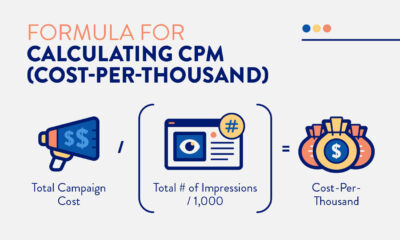Health
Diabetes Medications That Promote Weight Loss

High blood sugar levels are a defining characteristic of diabetes, a chronic illness. In addition to a healthy diet and regular exercise, medicines are essential for treating diabetes. It’s interesting to note that some diabetes treatments can help patients lose weight. In this post, we’ll talk about a number of diabetic drugs that are frequently prescribed and have been linked to weight reduction.
Metformin:
One of the most frequently recommended treatments for type 2 diabetes is metformin. It is a member of the biguanide drug subclass. Metformin works by lessening the liver’s ability to produce glucose and increasing insulin sensitivity. For those with diabetes who are overweight, one of its added advantages is weight loss or prevention of weight gain, making it a desirable option.
GLP-1 Receptor Agonists:
Injectable drugs known as GLP-1 receptor agonists work by imitating the effects of the GLP-1 hormone, which helps control blood sugar levels. Exenatide and liraglutide are two such drugs that not only lower blood sugar levels but also aid in weight loss. By enhancing sensations of fullness, delaying stomach emptying, and suppressing hunger, GLP-1 receptor agonists promote weight loss by lowering caloric intake.
SGLT-2 Inhibitors:
A class of drugs known as sodium-glucose cotransporter-2 (SGLT-2) inhibitors prevents the kidneys from reabsorbing glucose, increasing the amount of glucose excreted in the urine. SGLT-2 inhibitors including canagliflozin, dapagliflozin, and empagliflozin are frequently prescribed medications. In addition to lowering blood sugar levels, these drugs have also been linked to a small amount of weight reduction because they cause more calories to be lost through increased urine glucose excretion.
DPP-4 Inhibitors:
Oral drugs known as dipeptidyl peptidase-4 (DPP-4) inhibitors raise the body’s levels of incretin hormones including GLP-1. By doing thus, they contribute to increasing insulin release and reducing glucagon secretion, which enhances blood sugar regulation. Despite the fact that DPP-4 inhibitors are typically thought to have no effect on weight, certain studies indicate that specific members of this class, including saxagliptin and liraglutide, may cause slight weight reduction.
Bariatric Surgery:
Bariatric surgery is a surgical procedure that efficiently treats both obesity and type 2 diabetes. Despite the fact that it is not a medication. A number of surgeries, including gastric bypass and sleeve gastrectomy, change the digestive system’s structure to aid in weight loss. With regular use, bariatric surgery can result in significant weight loss, better blood sugar management,.And potentially the remission of diabetes.
Conclusion:
A crucial component of diabetes care is managing weight, especially for those who are obese or overweight. Weight loss has been linked to a number of diabetic treatments, offering advantages beyond glucose management. Weight-reducing effects have been seen with metformin, GLP-1 receptor agonists, SGLT-2 inhibitors, and specific DPP-4 inhibitors. In order to choose the best drug based on unique needs and factors. It is essential to speak with a healthcare practitioner. Always remember that for best diabetes treatment and weight loss results, medication use should be combined with healthy lifestyle changes including a balanced diet and frequent exercise.
Health
119 Health and Wellness

The pursuit of a healthy and happy life has become more important than ever in today’s fast-paced society. This article will examine “119 health and wellness,” a comprehensive strategy that places equal weight on one’s mental, physical, and emotional health. We will examine the fundamentals of 119 health and wellbeing, from diet and exercise to meditation and self-care.
Understanding 119 Health and Wellness
What is 119 Health and Wellness?
The 119 Health and Wellness Method is an all-encompassing strategy for improving one’s health and happiness. These components acknowledge the interdependence of our physical, mental, and emotional well-being.
The concept of holistic health and wellbeing is central to the 119 wellness movement. Health is defined as not only the absence of sickness but also the presence of flourishing in the areas of one’s physical, mental, and emotional selves as well.
The 119 Elements of Health and Wellness
Nutrition: Fueling Your Body
Good health begins with a healthy diet. Proper nutrition involves feeding your body the nutrients it needs to perform at its best.
Physical Activity: Move Your Body
Physical fitness and general health depend on regular exercise. It aids in keeping the weight down, is good for the heart, and lifts the spirits.
Mental Health: The Power of the Mind
The state of one’s mind is just as important as one’s body. Seeking assistance when you need it, as well as practicing mindfulness and stress management, are stressed in chapter 119.
Emotional Well-being: Handling Emotions
Being emotionally healthy means being in control of your feelings. Meditation and journaling are two methods that might be quite useful in this area.
Sleep: The Importance of Rest
Restorative and rejuvenating sleep is essential. A regular sleep routine is recommended by 119 health and wellnes experts.
Hydration: Drink Up
Insufficient water intake is a common problem. It’s vital to several processes in the body, including digestion and maintaining a steady internal temperature.
Stress Management: Keep Calm
The effects of prolonged stress on the body may be devastating. The ability to cope with stress is crucial to good health.
Relationships: Building Connections
Positive interpersonal interactions are an integral part of a healthy lifestyle. They help people feel better emotionally and mentally.
Self-Care: Taking Time for Yourself
Spa days walks in the park, and engaging in other forms of self-care are all important for maintaining a healthy mind and spirit.
Goal Setting: Aiming for Success
By focusing on progress rather than perfection, goal setting may increase drive and fulfillment, allowing you to live more on purpose.
Mindful Eating: Savor Your Meals
Eating mindfully helps you enjoy every mouthful, which is good for your digestive system and your waistline.
Meditation and Mindfulness: Inner Peace
Anxiety and stress can be alleviated via the practice of meditation and mindfulness.
Exercise Variety: Keep It Fun
Changing up your workout regimen from time to time helps keep things fresh and prevent boredom.
Digital Detox: Unplug
Taking a break from screens has been shown to lower stress and increase the quality of sleep.
Holistic Therapies: Alternative Approaches
Holistic therapies like acupuncture and chiropractic therapy are worth investigating since they can complement standard medical care.
Benefits of Embracing 119 Health and Wellness
Improved physical health, less stress, higher emotional well-being, and more life satisfaction are just a few of the many benefits of prioritizing one’s health and fitness. It’s a guide for living a happier and more productive life.
Conclusion
119 health and Wellness offers a comprehensive strategy for health in a fast-paced society. People may have better, more satisfying lives if they prioritize their physical, mental, and emotional well-being. The key to realizing your maximum potential is adopting the 119 principles of health and fitness.
FAQ’s
1. Is 119 health and wellness a new concept?
The idea of a holistic approach to one’s health and well-being is not new, but it has recently gained popularity.
2. How can I incorporate the 119 elements into my daily life?
Modifying your diet, increasing your exercise, and adopting a more attentive attitude are all good places to start.
3. Can 119 health and wellness help with mental health issues?
The value of mental health is emphasized, and methods for bettering and maintaining it are provided, in Section 119 of the Health and Wellness section.
4. Are there any specific diets recommended for 119 health and wellness?
While there is no universally beneficial diet, eating more natural, unprocessed foods is generally a safe bet.
5. What’s the first step to embracing 119 health and wellness?
Realizing you need to make some adjustments in your life and accepting that holistic health is important are the first steps.
Health
Pfizer Layoffs: Navigating the Corporate Landscape

The massive pharmaceutical company Pfizer recently went through a big corporate reorganisation that resulted in numerous layoffs. This article explores the details of Pfizer’s layoffs, looking at the rationale for the action, the effects it had on workers, and more general trends in the pharmaceutical sector.
Understanding Pfizer Layoffs
The Why and How
Pfizer is not alone in its decision to implement layoffs; rather, it is the outcome of more significant shifts in the economy and business environment. Both industry observers and employees need to understand why the shift is being made.
Impact on Employees
Layoffs affect people’s lives profoundly, even beyond the numbers. This section examines the psychological and occupational fallout for Pfizer employees.
Corporate Restructuring Trends
The Dynamics of Pharmaceutical Industry
The pharmaceutical industry is always changing, and businesses need to change with it. We examine the more general patterns influencing Pfizer’s choices.
Global Economic Factors
There are other external economic forces at play. Analysing the state of the world economy gives Pfizer a complete picture of the difficulties it faces.
Communication Strategies During Layoffs
Transparent Communication
It’s critical to communicate effectively when there are layoffs. We investigate the ways in which transparency can lessen the effects on workers.
Employee Support Programs
Through a variety of initiatives, businesses can offer vital help during uncertain times. The significance of these projects is explored in this section.
Navigating the Job Market After Pfizer Layoffs
Resume Building
After layoffs, finding a job demands a smart strategy. Discover how to create a CV that is both captivating and unique.
Upskilling Opportunities
Acquiring new abilities improves one’s employability. Find ways to improve your skills in a market for jobs that is highly competitive.
Emotional Well-being Amidst Uncertainty
Coping with Job Loss
Losing a job is emotionally draining. People can benefit from practical guidance and coping techniques at this difficult time.
Mental Health Resources
It is essential to prioritise mental wellness. We investigate resources available to support persons dealing with the stress of job loss.
Legal Aspects and Employee Rights
Severance Packages
Employee comprehension of severance payments is essential. We dissect the legal ramifications and individual rights.
Legal Protections
When laid off, employees have certain legal rights. Discover the available legal safeguards and channels for complaint.
Industry Insights: Pharma Job Market
Current Trends
Examine the pharmaceutical industry’s present employment landscape and its effects on those impacted by Pfizer’s layoffs.
Future Outlook
Future trend prediction offers insightful information to people who are deciding on their next career steps
Pfizer’s Response and Future Plans
Company Statements
It is crucial how Pfizer conveys its response. Examine the company’s official comments and position towards the future.
Strategic Initiatives
It matters a great deal how Pfizer responds. Examine the official remarks and the company’s position towards the future.
Employee Testimonials
Perspectives from Affected Individuals
True stories provide original perspectives. Get firsthand accounts from workers impacted by Pfizer’s layoffs.
Coping Strategies
Find out how people are handling difficulties and using coping mechanisms after being laid off.
Corporate Social Responsibility Amid Layoffs
Community Engagement
Pfizer’s involvement in the community has the power to influence public opinion. Examine the CSR efforts that the company is undertaking at this time.
Social Impact Initiatives
A crucial component of corporate responsibility is how businesses support social welfare in the face of layoffs.
Lessons from Pfizer Layoffs
Insights for Corporations
What can Pfizer’s experience teach other businesses? We draw insightful conclusions for business decision-makers.
Employee Empowerment
Resilience is fostered when workers are empowered throughout times of change. Learn how companies can put employee well-being first.
Success Stories Post-Layoffs
Career Transitions
Hope is given by success tales following layoffs. We highlight those who overcome obstacles and successfully shift into new careers.
Resilience and Adaptability
The secret to conquering obstacles is resilience. Examine examples of people who overcame unanticipated career transitions by being resilient and adaptable.
Expert Opinions on the Industry Shift
Analyst Perspectives
Experts in the field discuss the wider changes that are occurring in the pharmaceutical industry and how they will affect workers.
Future Predictions
What does the industry’s future hold, and how can people get ready? We compile professional opinions and forecasts.
Conclusion
In summary, the Pfizer layoffs provide as a microcosm of the difficulties that businesses have in the fast-paced commercial world of today. It is crucial for anyone navigating these difficult times to comprehend the many facets of these layoffs, from the corporate choices’ motivations to the effects on personnel and the larger industry trends.
Even if there are definitely difficulties following layoffs, there are also opportunities for development and important lessons to be learnt. Through adopting open and honest communication practices, providing emotional and professional support to staff, and upgrading skills to accommodate changes in the sector, people can not only endure difficult times but also come out stronger and more resilient.
FAQ’s
What led to Pfizer’s decision to implement layoffs?
Examine the fundamental causes and the variables that influenced Pfizer’s strategy choice.
How can individuals cope with the emotional toll of job loss?
Learn useful coping mechanisms and mental health resources to help people deal with the difficulties associated with unemployment.
What legal protections do employees have during layoffs?
Recognise the legal ramifications of layoffs, including as severance benefits and employee rights.
What initiatives is Pfizer taking to support affected employees?
Examine Pfizer’s reaction, which includes initiatives and support programmes designed to ease the transition for staff.
How can individuals prepare for the future job market in the pharmaceutical industry?
Learn about opportunities and developments in the pharmaceutical industry as well as tactics for changing careers.
Health
The Perfect Travel Companion for Parents: The Travel Diaper Changing Pad

As a parent, you’re always on the go, and that means you need a diaper-changing solution that’s convenient, practical, and easy to use. That’s where the travel diaper changing pad comes in. At Babyfefe, we’ve designed the perfect travel companion for parents: a portable and compact diaper-changing pad that makes on-the-go diaper changes a breeze.
Diaper Changing Pad
Our travel diaper changing pad is made with high-quality, waterproof materials that are easy to clean and ensure that your baby stays clean and dry during diaper changes. The pad folds up easily and compactly, making it the perfect addition to any diaper bag or suitcase. Whether you’re taking a road trip, flying to a new destination, or just running errands, this travel diaper changing pad makes diaper changes on-the-go a hassle-free experience.
One of the biggest benefits of a travel diaper changing pad is the convenience it provides. When you’re traveling, you don’t always have access to a clean and safe place to change your baby’s diaper. With a travel changing pad, you’ll always have a hygienic and comfortable surface to change your baby’s diaper, no matter where you are.
Another benefit of a travel diaper changing pad is that it can help you save space. When you’re traveling, you need to pack light and make the most of the space you have. A travel changing pad is compact and lightweight. Making it easy to fit into your diaper bag or suitcase without taking up too much space. Plus, it’s versatile enough to be used in a variety of settings, from airplanes to rest stops.
When choosing a travel diaper changing pad, it’s important to look for one that’s made with high-quality materials. At Babyfefe, we use waterproof materials that are easy to wipe down and clean, so you won’t have to worry about any messes or spills. Our travel changing pads
are also made with soft and comfortable materials that are gentle on your baby’s delicate skin.
Another factor to consider when choosing a travel diaper changing pad is the size. Our changing pads are compact and easy to fold, making them perfect for traveling. They’re also lightweight, so you won’t have to worry about carrying around any extra weight.
In addition to being practical and convenient, a travel diaper changing pad can also be stylish. At Babyfefe, we offer a variety of colors and designs to choose from. So you can find a changing pad that complements your style and personality. Plus, our changing pads come with a built-in pillow to keep your baby’s head supported, as well as a detachable bag to store wipes and diapers.
In conclusion, a travel diaper changing pad is an essential item for any parent who’s always on the go. It provides convenience, hygiene, and style, making diaper changes on the go a breeze. At Babyfefe, we offer high-quality travel changing pads that are easy to clean and fold. So you can take them with you wherever you go. Don’t wait any longer, order your travel diaper changing pad today and make your life easier!
-

 Fashion7 months ago
Fashion7 months agoHow To Style Earrings for a Night Out
-

 Real Estate1 year ago
Real Estate1 year agoHow to Unlock the Benefits of Real Estate Investment in Pakistan
-

 Business2 months ago
Business2 months agoWhat Can You Expect from a High-End London Office Space?
-

 Tech12 months ago
Tech12 months agoTMIIS Virtual Gateway: Opening New Horizons in Global Connectivity
-

 Digital Marketing2 months ago
Digital Marketing2 months agoHow to calculate CPM in digital marketing?
-

 General2 months ago
General2 months agoUnraveling the Mysteries of “λιβαισ”: A Comprehensive Guide
-

 Lifestyle1 year ago
Lifestyle1 year agoThe New Trend in Home Furnishings Teapoy and Wooden Sitting Stool
-

 Real Estate1 year ago
Real Estate1 year ago5 Common Mistakes to Avoid When Buying Property in Pawleys Island, SC
